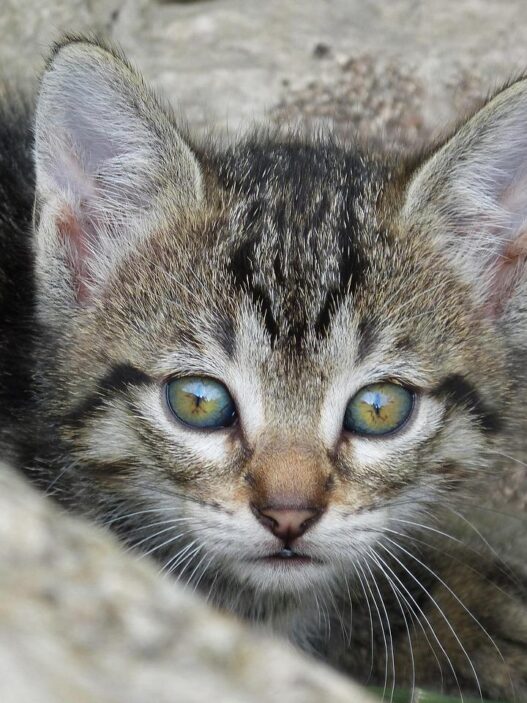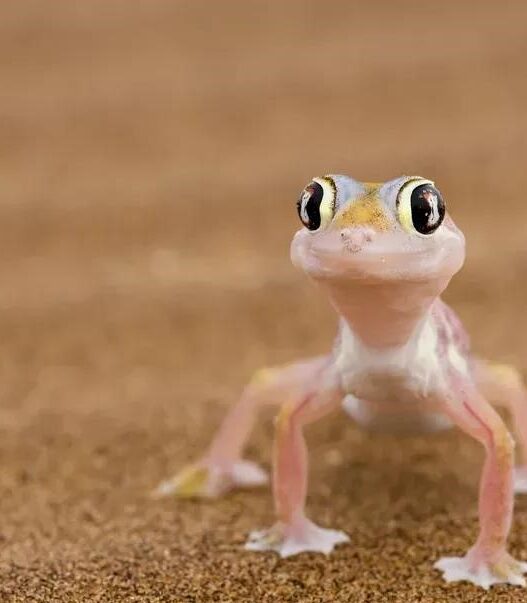As a new parent, it’s easy to be overwhelmed when you see your baby drooling nonstop. You might think it’s just part of their playful nature, or maybe they’re just hungry for something they can’t quite reach. However, you’d be surprised to learn that all that drooling is actually part of a significant process happening inside your baby’s body—it’s their immune system getting a much-needed upgrade!
Why is My Baby Drooling So Much?
At first glance, it seems like nothing more than a fun game of waterworks for your little one. But the truth is, the drooling is much more than that—it’s part of your baby’s immune system development. Babies are born with underdeveloped immune systems and oral functions. Around three months, the body’s “saliva factory” starts ramping up, marking a key stage in the development of the mouth and immune system. During this time, the salivary glands develop rapidly, and saliva production increases drastically. This process isn’t driven by hunger or curiosity, but instead, it serves a critical function—protecting the body from viruses and bacteria.
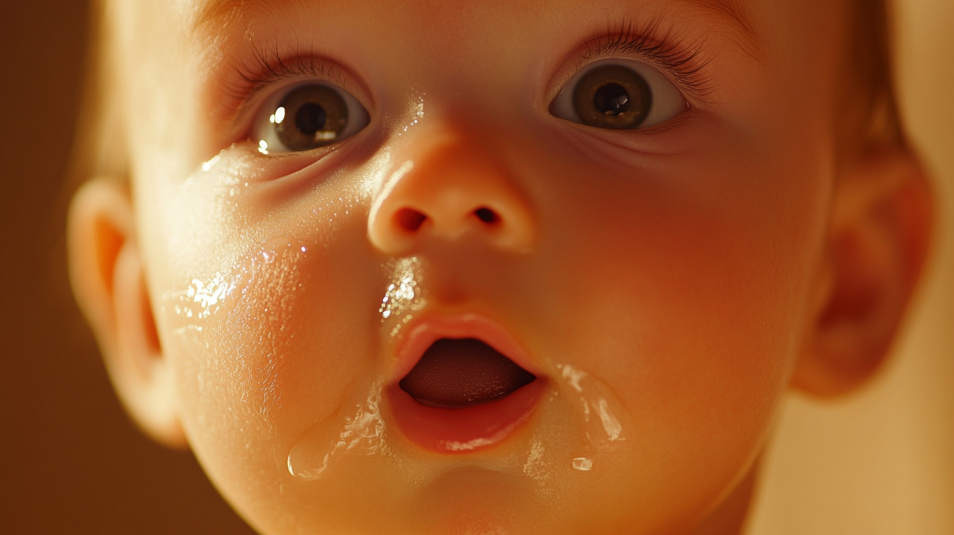
You might not have realized it, but your baby’s saliva is packed with enzymes like lysozyme and antibacterial agents. These natural compounds act as the body’s first line of defense against infections, boosting the baby’s immune system from the inside out. Put simply, your baby is using saliva as a defense mechanism to build up their resistance to harmful agents in their environment.
The Hidden Reasons Behind Excessive Drooling
While immune system strengthening is a big reason for the drooling, there are other important factors at play:
1. Teething: Drooling Goes Into Overdrive
Between the ages of 4 to 6 months, teething begins. The gums become itchy, and drool production increases dramatically. This excess saliva is not just an inconvenience—it serves a practical purpose. The enzymes in the saliva help soothe the gums, reducing discomfort as the teeth begin to emerge. It’s not just an adorable phase—this drooling helps your baby manage the pain of teething.
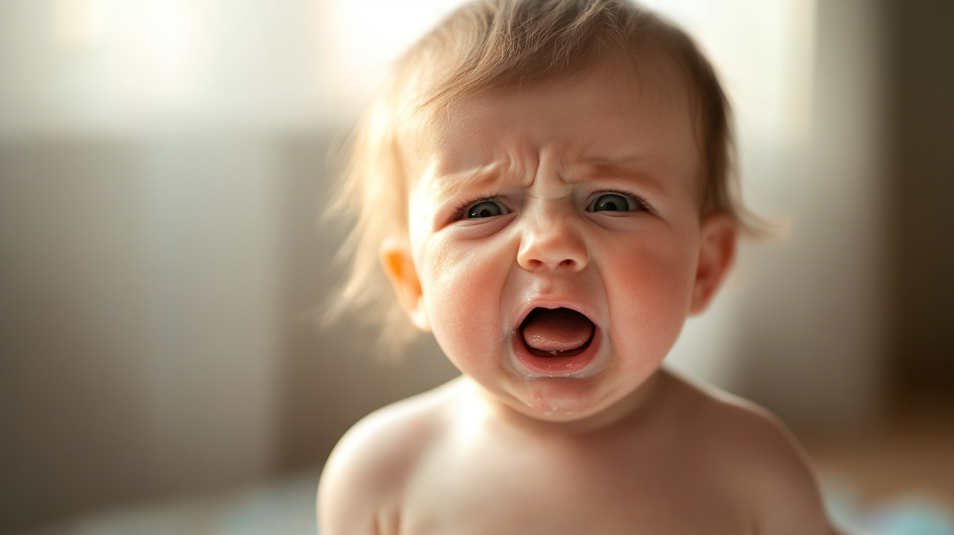
2. Preparing for Solid Foods: Baby’s Natural “Warm-Up”
Your baby’s saliva also contains amylase, an enzyme that breaks down starches, which is key when transitioning to solid foods. The surge of drool at this stage is a sign that your baby is preparing for the introduction of solids. It’s an indication that their body is gearing up for a more complex diet, and that the digestive system is becoming more efficient.
3. Oral Development: Saliva as a Training Tool
Even more surprising is that the act of drooling and blowing bubbles can play a crucial role in developing oral and speech muscles. These drooling exercises are helping your baby develop the muscles needed for speaking later on. So, while it might seem like silly play, it’s actually a form of natural “training” for future milestones like talking and chewing.
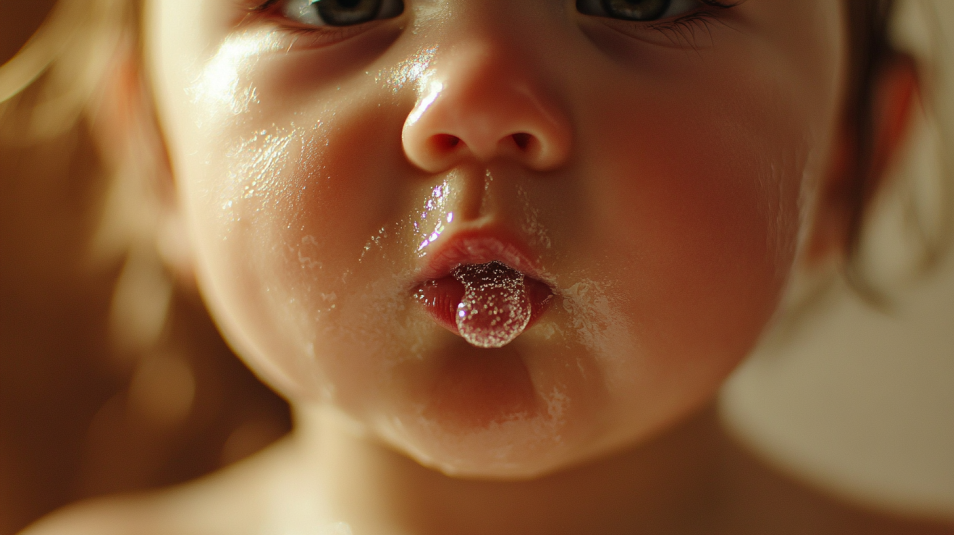
What Should Parents Do When Baby Is Drooling?
Now that we know the reasons behind the drooling, you may be wondering how to deal with the mess. Here are some practical tips to handle the drool phase without stress:
Tip 1: Use Absorbent Bibs or Drool Cloths
Having several cotton bibs or drool cloths on hand is a lifesaver. They’ll help absorb the excess saliva and keep your baby dry and comfortable. Make sure to wash them frequently to keep your little one’s skin dry and free from irritation.

Tip 2: Protect Your Baby’s Skin
Constant drooling can lead to rashes on your baby’s delicate skin. Apply a baby-safe moisturizer or petroleum jelly to create a protective layer on their skin. This will help prevent drool rash and keep their skin soft and smooth.
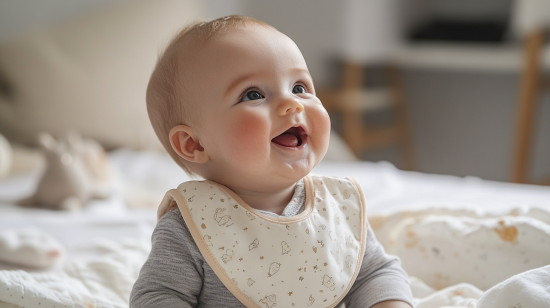
Tip 3: Provide Safe Teething Toys
Teething can make drooling worse, so offering your baby safe teething toys or teethers can be a great distraction. They help alleviate discomfort and reduce the urge to drool uncontrollably.
Common Mistakes to Avoid
Although drooling is a completely natural and healthy part of your baby’s growth, there are a few things to avoid during this stage:
Mistake 1: Wiping Drool Too Often
Many parents immediately grab a tissue to wipe away drool. However, frequent wiping can cause skin irritation due to friction. Instead, gently press a cloth to absorb the drool without rubbing it. This will protect your baby’s delicate skin from becoming sore.
Mistake 2: Believing Drooling Means Digestive Issues
Some older family members may suggest that excessive drooling is a sign of digestive issues, like a “weak spleen” or other concerns. In reality, this is a misunderstanding. Drooling is a normal part of your baby’s developmental process, and it’s not connected to any digestive weakness. There’s no need to overcompensate with treatments or remedies that won’t help.

Conclusion: Drooling Is a Positive Sign of Growth
While the mess of drooling can seem overwhelming at times, remember that it’s a natural sign of your baby’s development. From teething to building immune defenses, drooling is a healthy part of growing up. With the right care and attention, you’ll navigate through this phase with ease, knowing it’s all part of the exciting journey toward your baby’s healthy growth and milestones.













